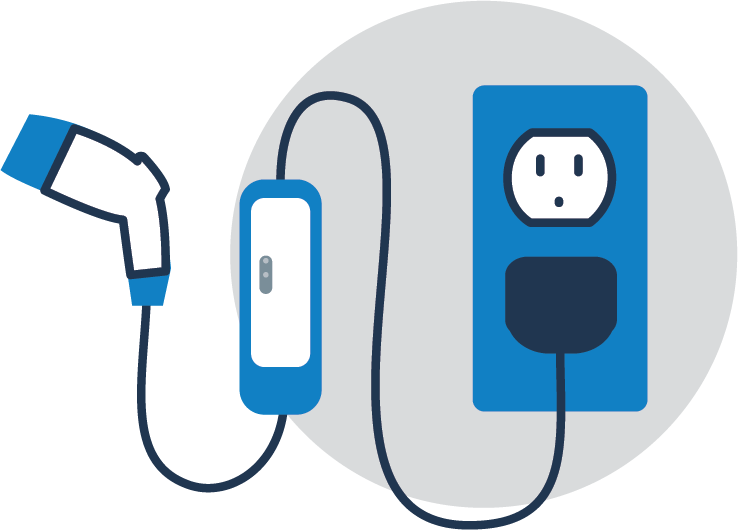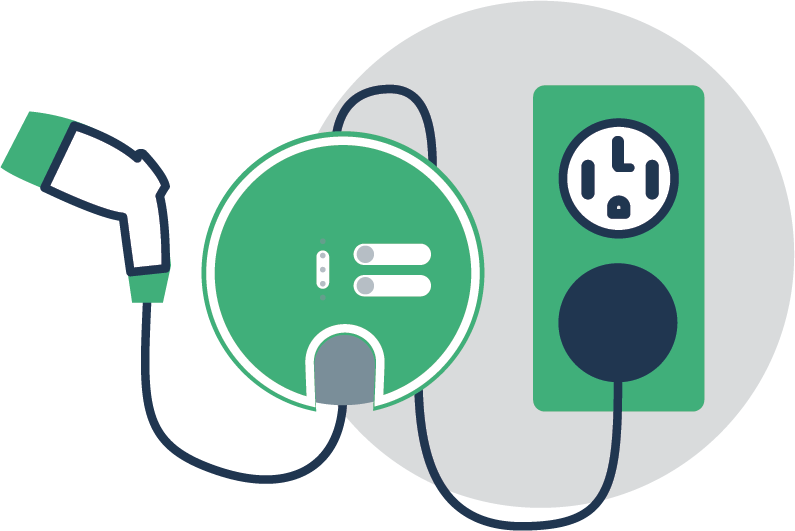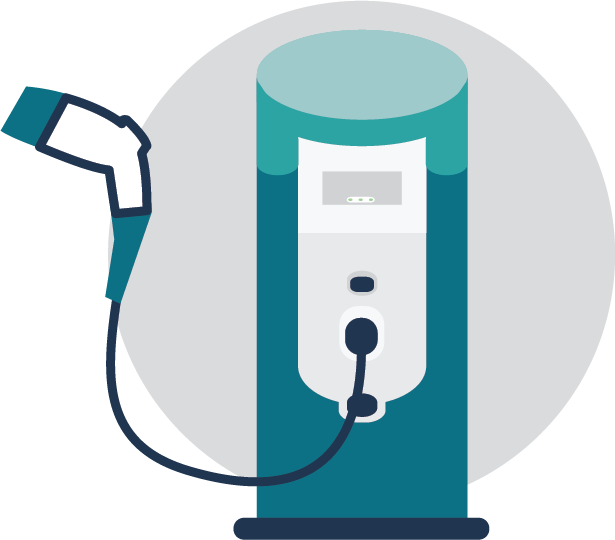Learn the differences between the three electric vehicle charging options.
EV charging is simple, low cost, clean, and convenient, particularly when you are plugged in at home and filling up your battery overnight.
Although EV drivers primarily charge at home, workplace and public chargers are increasingly available in communities nationwide. To find nearby charging stations, check the links to public fueling station maps on the Online Resources page. There are three categories of EV charging: Level 1, Level 2, and DC fast charging.
Level 1 Charging
This is the slowest method of charging, but it is sufficient for PHEV drivers, individuals who charge overnight, and commuters who travel 30‒40 miles per day. Charging cables usually come with the vehicle when purchased or leased and plug into a standard 120-volt AC outlet with no additional equipment or installation required. Level 1 charging works well for charging at home or anywhere a standard outlet is available—and when you have sufficient time to charge.
Level 1 charging uses a standard J1772 or Tesla connector that can plug into any EV, either directly or through an adapter.
1 hour of charging time
=
3.5 - 6.5 miles of driving range*
*Depending on battery type, charger configuration and circuit capacity.


Level 2 Charging
Level 2 charging is considerably faster, but requires installing a charging station, also known as electric vehicle supply equipment (EVSE). This requires a dedicated 240-volt or 208-volt electrical circuit, similar to what is required for a clothes dryer or electric range. Level 2 is ideal for charging a BEV at home, but it is also found at many public and workplace charging stations.
Level 2 charging uses the same standard J1772 or Tesla connector as a Level 1 charger.
1 hour of charging time
=
14 - 35 miles of driving range*
*Depending on battery type, charger configuration and circuit capacity.
DC Fast Charging
DC fast charging, also called quick charging or supercharging, provides the fastest available fill-up. It requires a 480-volt connection, making DC fast chargers (DCFCs) ideal for highways and interstate corridors for long distance travel. DCFCs are found in shopping centers, community hubs, and often along major travel corridors, allowing EV drivers to charge up quickly and take longer trips.
DCFCs use CHAdeMO, CCS, or Tesla connector systems.
30 minutes of charging time
=
Up to 100 miles of driving range*
*Depending on battery type, charger configuration and circuit capacity.

